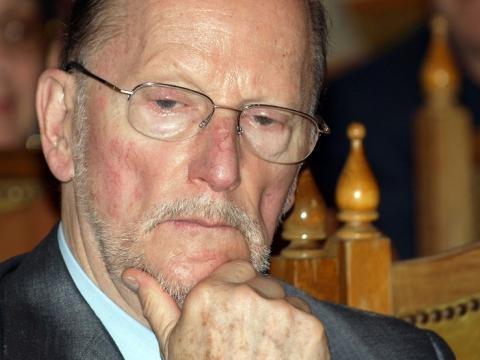Bulgaria’s recent history is a story of incessant ups and downs in the search of the big brother or the savior. In two world wars the big brother was Berlin, then it was Moscow and today he resides in Brussels. In the meantime, the search for the savior continues although Bulgaria has become a member – though the poorest – of the world’s club of the richest. Over time the savior took various images of political leaders and mayfly parties but one of them has always shone with a special, aristocratc light. We had forgotten him but the Holy Synod of the Bulgarian Orthodox Church has come up with a surprising reminder.
 Simeon Saxe-Coburg-Gotha invaded the Bulgarian political life in 2001 and vowed to bring wellbeing in 800 days of government, so Bulgarians elected him to serve as prime minister. Back at that time his status created certain difficulties: declared Tsar of Bulgarians after the death of his father Boris III and having never either reigned or abdicated the throne, the multilingual aristocrat was back after many years of exile to serve as prime minister of the Republic of Bulgaria.
Simeon Saxe-Coburg-Gotha invaded the Bulgarian political life in 2001 and vowed to bring wellbeing in 800 days of government, so Bulgarians elected him to serve as prime minister. Back at that time his status created certain difficulties: declared Tsar of Bulgarians after the death of his father Boris III and having never either reigned or abdicated the throne, the multilingual aristocrat was back after many years of exile to serve as prime minister of the Republic of Bulgaria.
His story is not different from the story of other “saviors” – after a four-year mandate the crownless tsar went into oblivion; the promised wellbeing never took place, but now over the outgoing week, the republican-tsar is back to the headlines in the press. Why? Because the Bulgarian Orthodox Church has decided that the former prime minister should be mentioned in all prayers in churches and monasteries as the Tsar of Bulgarians during both public and private liturgical service.
This way the crisis of identity that has been a companion of Bulgaria for decades has come to a new peak, because after all, speaking of a tsar of Bulgarians in a republic is downright inadequate. There was a relatively adequate reaction from secular power, namely the president, who urged the Holy Synod to revise its decision made on the eve of the 1150th anniversary since the Christianization of Bulgarians.
In a logical perspective the bid in the 2001 parliamentary elections and then leading a cabinet of a parliamentary republic both represent a clear renunciation of any monarchic claims. Simeon Saxe-Coburg-Gotha accepted his civil name and the republican post but he did not give up the crown unambiguously. And in the eyes of Bulgarians the aristocrat is likely to leave a bitter memory of his hidden and not very aristocratic plans after the homecoming – even after his official withdrawal from politics Saxe-Coburg-Gotha has continued pursuing the restitution of his real properties in this country. Similar to other of his predecessors who acted the part of the savior, the tsar too entered politics for the sake of his private interest. Now Simeon shall be mentioned in prayers as the Tsar of Bulgarians. Whatever the motives of the senior clergy the surprising move is not very likely to help reclaim the rapidly melting trust of Christians in the Bulgarian Orthodox Church.
English Daniela Konstantinova
Calin Georgescu to run for President of Romania Romanian police seized weapons and large sums of money in the investigation against pro-Russian former presidential candidate Calin Georgescu. 25 kg of gold, more than 3.3 million dollars, 43 000..
"The 'Zhelyazkov' cabinet must continue to work, even as a minority government." This was GERB leader Boyko Borissov's comment on the Constitutional Court's decision to order the Central Election Commission to recalculate the results of the..
Călin Georgescu remains the favorite for the presidential election in Romania Călin Georgescu, who won the annulled first round of the presidential elections in November 2024 as an independent candidate, remains the..
"The 'Zhelyazkov' cabinet must continue to work, even as a minority government." This was GERB leader Boyko Borissov's comment on the Constitutional..
Calin Georgescu to run for President of Romania Romanian police seized weapons and large sums of money in the investigation against pro-Russian..

+359 2 9336 661
